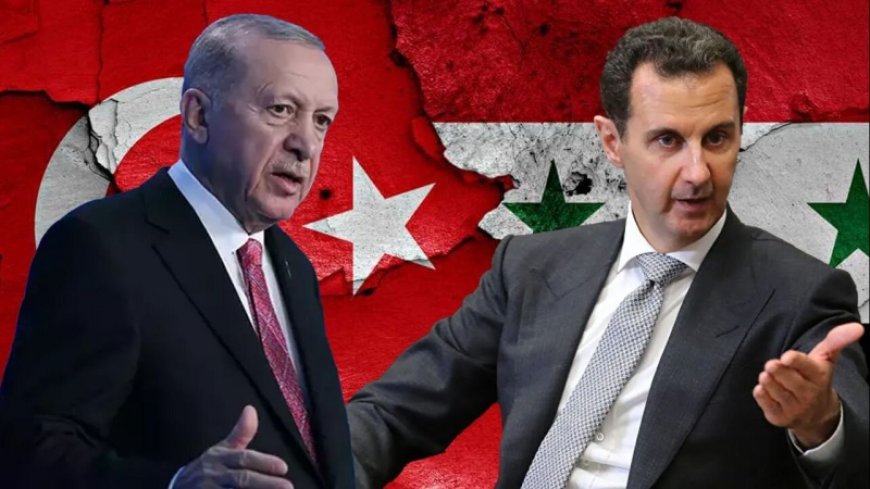Erdogan's Contradictory Remarks on Syrian Conflict Raise Diplomatic Concerns
The Turkish president has made a statement that contradicts diplomatic principles. He expressed hope that anti-government armed terrorist groups in Syria will continue their advance "without incident."

Turkish President Recep Tayyip Erdogan recently said in a remark causing great diplomatic anxiety that anti-government armed groups in Syria, some of which are classified as terrorist organizations, will keep on their advance "without incident." Made following Friday prayers, this comment seems to directly run counter to diplomatic norms and stability in the area since it openly promotes the ongoing fighting and compromises efforts at peace.
Given the current Syrian Civil War, which has displaced millions of people and caused great suffering, Erdogan's words seem to point to Turkey's interests aligning with those of those opposing the Syrian government. The president went on to say that these gangs, whose goals include marching across Aleppo, Hama, and Homs, are now allegedly focusing on Damascus. "I hope this process will continue without incidents," he remarked, endorsing their advancement.
Although Erdogan's words might capture Turkey's posture in a geopolitally complicated environment, they stand in sharp contrast to the diplomatic values that have always shaped world affairs. His comments seem to inspire ongoing instability rather than advocating a stop to violence or peaceful communication. This runs the danger of aggravating an already precarious situation, thus it has attracted strong criticism from many directions.
Erdogan further mentioned that although he had invited Syrian President Bashar al-Assad for communication to decide the destiny of his nation, the invitation was turned down. This dialogue emphasizes the continuous conflict between Turkey and Syria as well as Syria's refusal to interact with Ankara under present circumstances. Though the diplomatic approach has failed, Erdogan's aspirations for an insurgent triumph point to a will to shape Syria's future without a sincere will for peaceful solutions.
The remarks of the Turkish president fit growing worries about Turkey's involvement in the war. Analysts have said Turkey's engagement in Syria transcends simple humanitarian or security concern. A Euronews story claims that Turkey aims to confirm its regional power by underlining control over Kurdish separatists and safeguarding oil-rich northern Syria. Particularly in relation to cooperation with Israel, this strategic objective has resulted in charges that Ankara is purposefully fueling the embers of conflict to retain leverage against the so-called "Axis of Resistance," a moniker describing parties opposing Israeli involvement in the area.
Reports of members of Syrian opposition groups—which Turkey supports—raising the Turkish flag in recent days help to underline this claim. Turkey insists it is not directly supporting the Syrian crisis, hence it is denying any official link to these groups despite these obvious indicators of participation. This paradox drives doubts on Turkey's actual goals and diplomatic posture in the area.
Turkey's activities, particularly in view of Erdogan's remarks, point to a growing interaction with Syrian opposition groups that might compromise the already unstable area. These comments undercut initiatives by world powers to negotiate a ceasefire or political resolution, therefore undermining efforts toward peace or reconciliation. Turkey runs the danger of aggravating relations with Syria and the world community by supporting some rebel groups, especially those headed towards Damascus.
Finally, Erdogan's comment on the ongoing development of anti-government groups in Syria exposes a worrying paradox in Turkey's foreign policy. Turkey's funding of opposition groups, together with Erdogan's dubious language, calls into doubt the actual motivations underlying Ankara's activities even as outwardly she advocates communication and regional peace. These events could compound the already complex Syrian crisis even more and impede any significant diplomatic resolution, therefore prolonging the agony of the Syrians. As world players evaluate Turkey's position, it is imperative that the international community exhorts a more consistent and responsible approach to support regional stability.













































